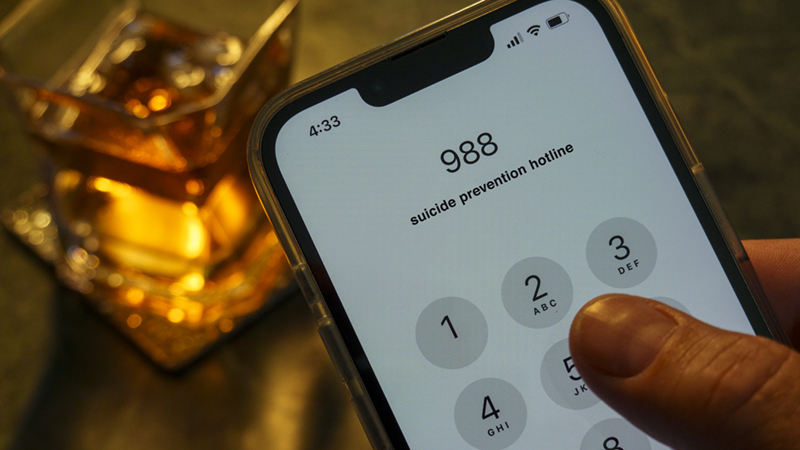Federal judge blocks Trump administration rule removing transgender health care protections
Government had sought to repeal part of the Affordable Care Act defining gender identity discrimination as sex discrimination

A federal judge in New York has blocked a Trump administration rule that sought to repeal transgender health care protections contained in the Affordable Care Act from taking effect, and issued an injunction to stop the administration from attempting to enforce the new change.
U.S. District Court Judge Frederic Block issued a preliminary injunction blocking the repeal in response to a lawsuit brought by the Human Rights Campaign on behalf of two transgender women of color, Tanya Asapansa-Johnson Walker, an Army veteran, two-time lung cancer survivor, and community leader who is living with HIV; and Cecilia Gentili, an entrepreneur, activist, writer, and storyteller who suffers from COPD, emphysema, latent tuberculosis, and is Hepatitis C-positive.
In the lawsuit, both women claim they’ve experience mistreatment, misgendering, and even been denied adequate care on multiple occasions when they interacted with health care workers, which has led them in the past to avoid seeking care except in emergency situations. This has exacerbated their pre-existing conditions.
As a result of the Trump administration’s rule, both women say they fear that they will be denied care altogether or subjected to substandard medical care should they seek treatment.
These fears are particularly acute in the middle of the ongoing COVID-19 pandemic, as both women’s medical history would make them more susceptible to contracting the virus.
The Trump administration has previously sought to justify the rule by redefining the term “sex” in a provision within the Affordable Act, known as Section 1557, that prohibits medical providers and health insurers from denying care solely “on the basis of sex.”
Under a 2016 rule pushed by the Obama administration clarifying the definition of sex, providers and insurers are barred from discriminating not only on a person’s natal sex, but their “internal sense of gender, which may be male, female, neither, or a combination of male and female.”
The rule change also explicitly prohibited the denial of services or treatment to pregnant women seeking abortions or who had recently undergone abortions.
But the Trump administration pushed through a rule in June that explicitly defined sex-based discrimination as only instances where a patient is discriminated against based on their biological sex at birth.
The new rule, with the gender identity protections excised, was slated to go into effect on Tuesday, prompting HRC to file the lawsuit on behalf of their clients.
In his order staying the repeal of the Obama-era protections and preventing the Trump administration’s definition from being enforced, Block concluded that the HRC plaintiffs had both standing to sue and met the legal requirements to obtain an injunction.
He also found that the repeal of the LGBTQ-friendly provisions was contrary to law, in light of the Supreme Court’s recent decision in Bostock v. Clayton County, Georgia finding LGBTQ people are protected by laws preventing sex discrimination in the workplace, and that the Department of Health and Human Services had acted “arbitrarily and capriciously” by finalizing the rule without taking into account the impact of that decision.
Related: Trump administration poised to rewrite Obamacare, without LGBTQ protections
“[T]he unmistakable basis for HHS’s action was a rejection of the position taken in the 2016 Rules that sex discrimination includes discrimination based on gender identity and sex stereotyping. Whether or not it is dispositive of that issue with respect to Title IX and Bostock, is at least ‘an important aspect of the problem,” Block wrote.
“By its own admission, HHS knew that the case was pending and would have ‘ramifications’; it must also have known that a decision would be handed down before the end of the Supreme Court’s term. It then had an (admittedly brief) opportunity to re-evaluate its proposed rules after the case was decided contrary to its expectations. Instead, it did nothing,” Block added. “The timing might even suggest to a cynic that the agency pushed ahead specifically to avoid having to address an adverse decision.
“But whether by design or bureaucratic inertia, the fact remains that HHS finalized the 2020 Rules without addressing the impact of the Supreme Court’s decision in Bostock,” Block concluded. “This makes it likely that plaintiff will succeed on their claim that the rules are arbitrary and capricious.”
Alphonso David, the president of the Human Rights Campaign, praised Block’s decision to issue an injunction blocking the Trump administration revision of Section 1557 from taking effect.
“This is a crucial early victory for our plaintiffs, Tanya and Cecilia, and for the entire LGBTQ community, particularly those who are multiply marginalized and suffering disproportionately from the impacts of the twin pandemics of COVID-19 and racialized violence,” David said in a statement. “We are pleased the Court recognized this irrational rule for what it is: discrimination, plain and simple. LGBTQ Americans deserve the health care that they need without fear of mistreatment, harassment, or humiliation.”
Lambda Legal, which has filed its own lawsuit challenging the Trump administration’s revision of Section 1557, praised the court’s decision. But the organization also noted that Block did not address other provisions within the revised rule that eliminate “categorical exclusions” in health care plans, the elimination of language-access protections for people with limited English proficiency, or the Trump administration’s insertion of religious exemptions that would allow providers to cite religious or moral beliefs to justify denial of care — all of which Lambda Legal is challenging in its lawsuit.
“In the midst of a global pandemic, the Trump administration has sought to invite discrimination in health care against LGBTQ people and other vulnerable populations. Today, a federal court has rejected their efforts and stopped the health care discrimination rule’s rollback of protections for LGBTQ people from going into effect,” Omar Gonzalez-Pagan, a senior attorney and health care strategist with Lambda Legal, said in a statement.
“We congratulate Tanya Asapansa-Johnson Walker, Cecilia Gentili, HRC and their co-counsel on this important victory in the fight against the Trump administration’s failed public health policy, and we look forward to a decision in our case challenging the health care discrimination rule. The safety and lives of LGBTQ people, but especially transgender people, hang in the balance.”
House Speaker Nancy Pelosi (D-Calif.), a frequent foil of President Trump’s, cheered the decision as “a victory for the LGBTQ community and the rule of law,” noting that the Democratic-led U.S. House of Representatives had previously issued an amicus brief in support of the plaintiffs.
“In the midst of a pandemic, the Trump Administration has executed a relentless assault on the health and well-being of our communities, working tirelessly to dismantle all of the Affordable Care Act’s life-saving protections for millions of Americans,” she said in a statement. “The Trump Administration’s discriminatory HHS rule, denying crucial health care benefits to LGBTQ Americans, is just the latest cruel attack in the Administration’s ongoing anti-health care agenda.
“LGBTQ Americans, particularly in the transgender community, have faced a long history of discrimination and inequality in access to health care,” added Pelosi. “House Democrats are proud to have fought for this important victory to ensure that all Americans can access the quality, affordable coverage that is their right.
“We will continue to oppose the Administration’s outrageous attempts to undermine health care and sow fear and hatred in our communities as we work to build a brighter, healthier future for all Americans.”
Read more:
LGBTQ Democrats will achieve some historic “firsts” at Democratic National Convention
Florida Senate candidate Shevrin Jones attacked by anti-gay robotexts
College Democrats accused of entrapping gay mayor Alex Morse to ‘sink’ campaign
Support Metro Weekly’s Journalism
These are challenging times for news organizations. And yet it’s crucial we stay active and provide vital resources and information to both our local readers and the world. So won’t you please take a moment and consider supporting Metro Weekly with a membership? For as little as $5 a month, you can help ensure Metro Weekly magazine and MetroWeekly.com remain free, viable resources as we provide the best, most diverse, culturally-resonant LGBTQ coverage in both the D.C. region and around the world. Memberships come with exclusive perks and discounts, your own personal digital delivery of each week’s magazine (and an archive), access to our Member's Lounge when it launches this fall, and exclusive members-only items like Metro Weekly Membership Mugs and Tote Bags! Check out all our membership levels here and please join us today!


























You must be logged in to post a comment.